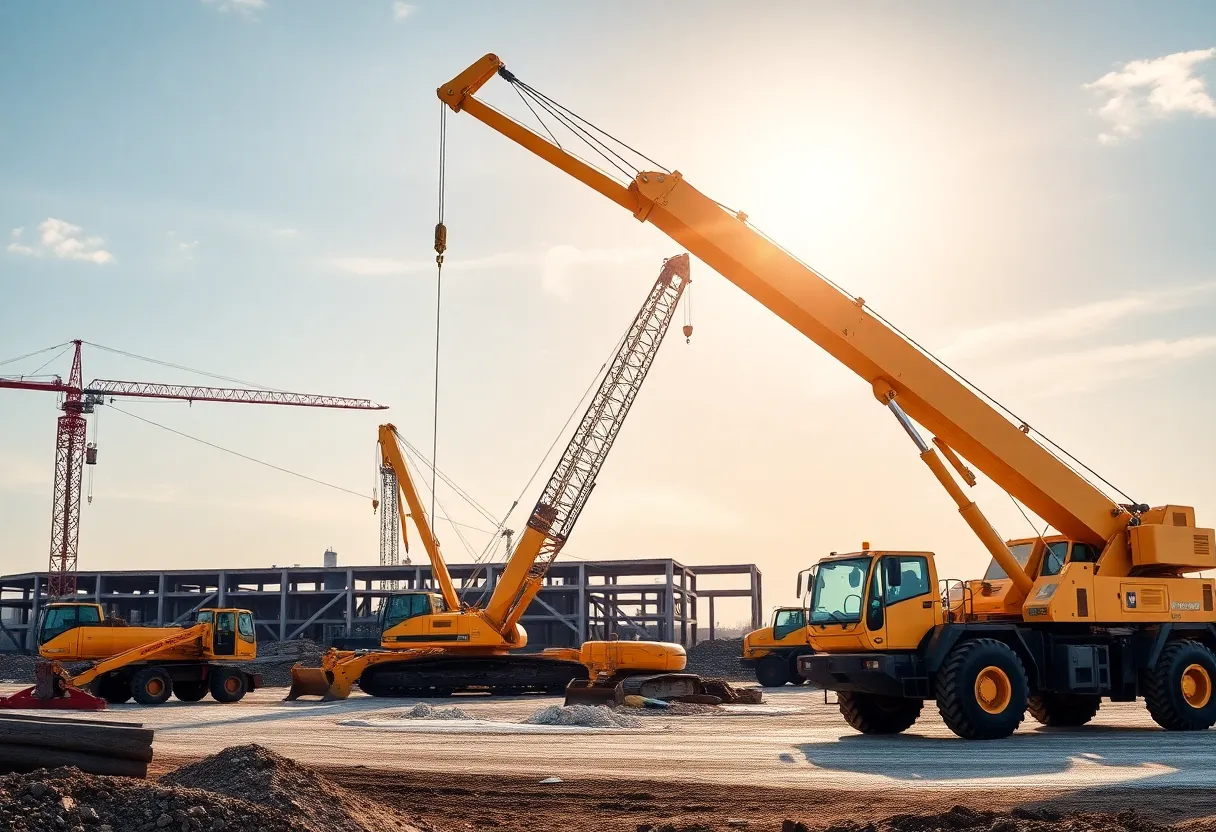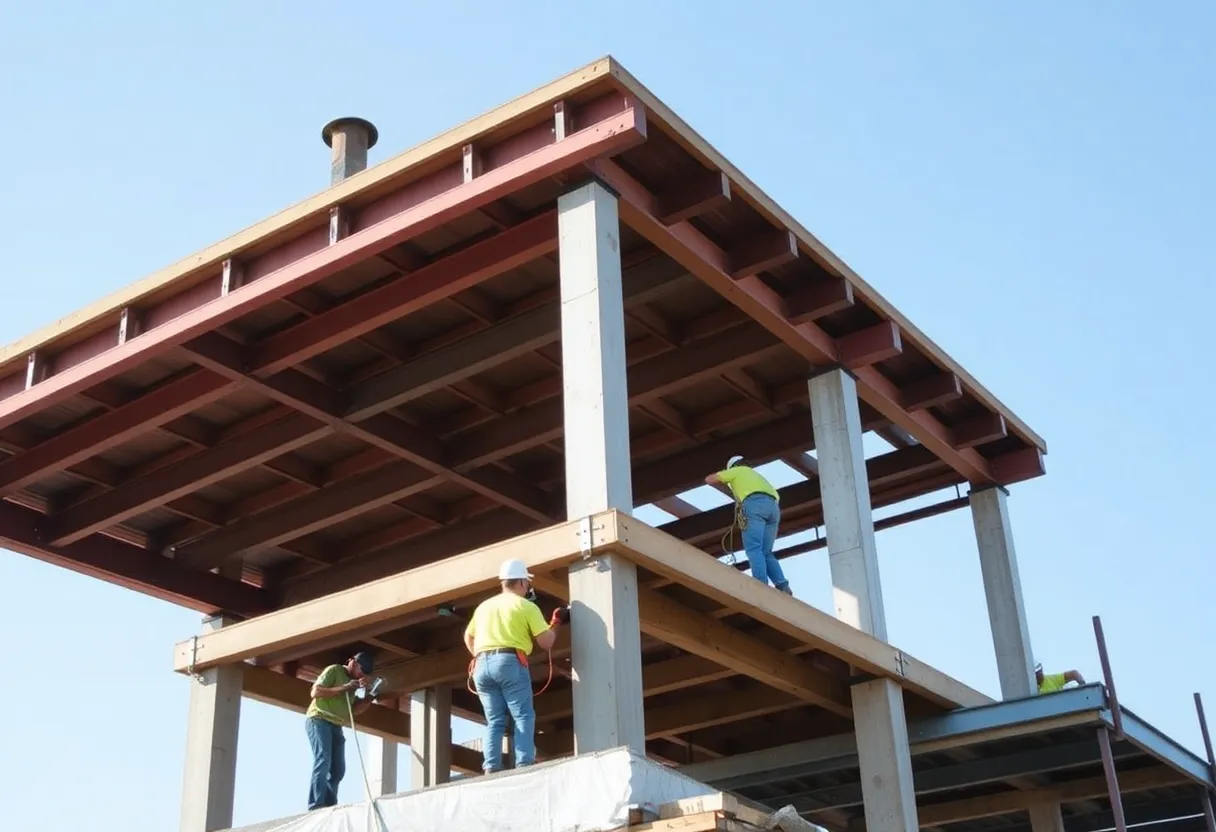Pennsylvania, September 11, 2025
News Summary
House Bill 1319 is making progress in Pennsylvania’s legislature, aimed at extending lien rights to rental equipment companies. This legislation seeks to include rented machinery under the Mechanics’ Lien Law, providing crucial protections for rental suppliers in the construction industry. Such changes are necessary as rental companies face financial risks without these lien rights, ensuring better payment practices and promoting financial stability within the sector.
Pennsylvania’s HB 1319 Aims to Support Rental Equipment Companies
Legislation known as House Bill 1319 (HB 1319) is moving through the Pennsylvania legislature, proposing important changes to the state’s Mechanics’ Lien Law. This bill seeks to expand lien rights to include equipment rentals, offering protection to rental suppliers in the construction industry.
Currently, the Mechanics’ Lien Law of 1963 safeguards the rights of labor workers and material suppliers engaged in construction projects. However, it does not adequately extend these protections to equipment rental companies. As a result, these rental businesses often find themselves in financially precarious situations if contractors default on their payments.
When it comes to critical equipment such as cranes and heavy machinery, the lack of clear lien rights poses a significant risk for rental suppliers. Without these protections, rental companies may struggle to recover costs when equipment has not been paid for, leading to potential financial losses.
Proposed Changes Under HB 1319
The proposed bill aims to rectify this issue by classifying rented equipment as “materials.” This change would grant rental suppliers the same lien rights as those already enjoyed by traditional material suppliers, such as those who provide bricks and lumber. If the bill becomes law, rental companies would have the authority to pursue lien rights for unpaid equipment rentals, regardless of whether the equipment has become a permanent fixture in the constructed project.
The shift reflects the modern reality of construction, where rented equipment is just as essential as conventional building materials. In today’s construction landscape, the use of rented machinery has become necessary for many projects, making it imperative for rental companies to have the same legal protections.
Implications for Project Owners and Developers
For owners and developers in the construction sector, this legislative change means they will need to navigate new requirements. Under the proposed bill, it will become crucial for project owners to obtain lien waivers not only from contractors and material suppliers but also from rental companies. This step is intended to safeguard against potential claims on rental equipment that may result from nonpayment.
Moreover, the introduction of these new lien rights is expected to foster better payment practices within the industry. As rental firms gain better protections, cash flow predictability will likely see improvements as well. This is beneficial not only for rental companies but also for the overall financial health of the construction projects.
Current Legislative Status and Support
HB 1319 has already passed through the House of Representatives and is now under review by the Senate Judiciary Committee. The evident legislative support for the bill indicates a favorable outlook for its passage into law. Stakeholders in the rental equipment market are watching closely, hopeful for this significant change within the rental sector.
Recommendations for Rental Companies and Owners
For rental companies, the potential implementation of this bill could enhance their position in negotiations regarding payment terms. However, it will be important for them to update contract terms and tighten lien waiver practices to further mitigate risks associated with unpaid rentals.
Construction industry owners are similarly advised to keep a close eye on payment flows and take necessary precautions. Being proactive in these areas will not only help in complying with this forthcoming change but may also reduce the risk associated with unpaid equipment rentals.
Conclusion
The legislative push represented by HB 1319 is a significant step toward offering greater protections for equipment rental companies in Pennsylvania’s construction industry. With the modern demands of construction requiring rented equipment, ensuring that these suppliers have appropriate lien rights is essential for fostering a more secure and financially stable environment.
Deeper Dive: News & Info About This Topic
Additional Resources
- Pennsylvania Independent: Animal Rights Advocates
- Legal Sports Report: Maryland Online Casino Update
- NH Business Review: Transgender Anti-Discrimination Bill
- IndyStar: Statehouse’s Payday Loans
- Tennessee Conservative News: Criminalization of Parents
Author: Construction FL News
The FLORIDA STAFF WRITER represents the experienced team at constructionflnews.com, your go-to source for actionable local news and information in Florida and beyond. Specializing in "news you can use," we cover essential topics like product reviews for personal and business needs, local business directories, politics, real estate trends, neighborhood insights, and state news affecting the area—with deep expertise drawn from years of dedicated reporting and strong community input, including local press releases and business updates. We deliver top reporting on high-value events such as the Florida Build Expo, major infrastructure projects, and advancements in construction technology showcases. Our coverage extends to key organizations like the Associated Builders and Contractors of Florida and the Florida Home Builders Association, plus leading businesses in construction and legal services that power the local economy such as CMiC Global and Shutts & Bowen LLP. As part of the broader network, including constructioncanews.com, constructionnynews.com, and constructiontxnews.com, we provide comprehensive, credible insights into the dynamic construction landscape across multiple states.





